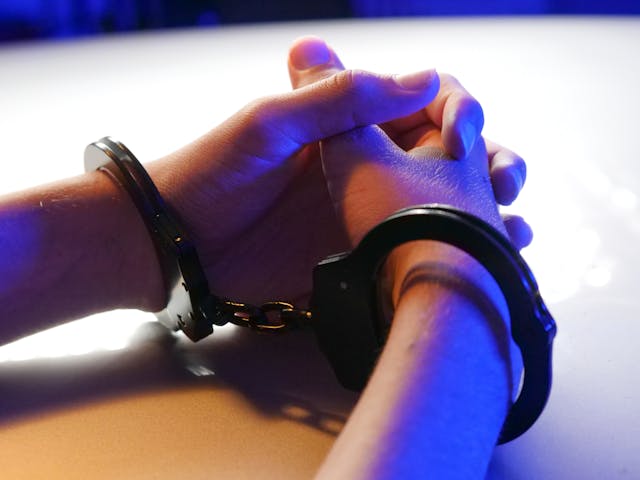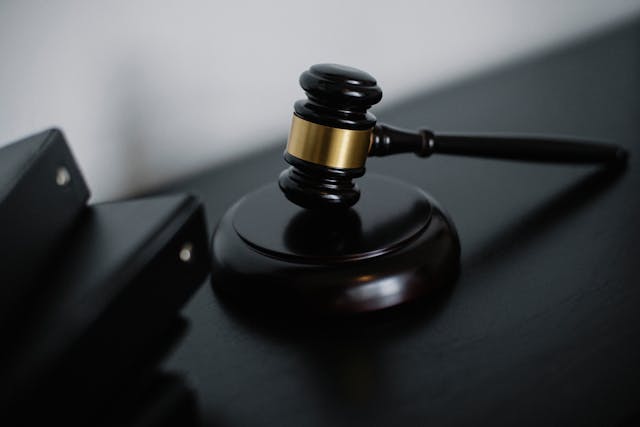Whether your child has been falsely accused of a crime or otherwise, if they have entered the juvenile justice system, then it’s important to understand that they have rights. It’s also important to help them understand those rights. It can be a traumatic and distressing experience for everyone involved, but it’s important to ensure that they are given a real chance at rehabilitation and release, even if detention facilities don’t always make that easy. As such, here are the rights you should be aware of, and how you should hold the system accountable when it fails to ensure them.

The Right To Due Process
The most vital right that applies to every child in the juvenile justice system is their right to due process. This is to ensure a child (or anyone) cannot be deprived of their freedom indefinitely, they have to be able to have fair legal proceedings. Aside from making it a right to know the charges against them, they also have the right to a fair hearing and to appeal decisions made by the court. Perhaps one of the most important parts of this right is that your child cannot be detained arbitrarily, the legal process has to continue fairly and transparently. If you have any issues making out the next step in the legal process or what you need to do, then you should seek clarification. If you or your lawyer think there have been procedural errors, challenge them as soon as you can.
Freedom From Cruel And Unusual Punishment
One of the rights enshrined by the Constitution is that those in prison are not allowed to be subject to any punishment that could be deemed cruel and unusual, which applies to juveniles just as much as anyone else. As such, they have to be protected from physical, emotional, and psychological abuse. This aims to protect them from excessive force but, in the case of juveniles, also applies to solitary confinement. Suppose your child indicates that they are being mistreated or you have reasons to believe it. In that case, you should take immediate action, reporting it to both the administrators of the detention center and your child’s lawyer, and documenting any evidence you can. Immediate action is warranted when it comes to any signs that your child has been a victim of cruel or unusual punishment. There are external advocacy and support groups that may be able to help you shine the light on these kinds of circumstances and see true accountability.
Equal Protection
There has been a lot of data to show that people who are frequently targets of discrimination can also face discrimination in the justice system. However, your child does have an entitlement to equal protection under the law. They cannot legally be discriminated against based on their race, gender, religion, and other protected characteristics, meaning they should be treated fairly and granted equal access to resources and programs within the system. As such, parents need to be vigilant and prepared to advocate for their children if there are any signs of prejudicial treatment. Systemic discrimination is not always easy to identify or to prove, so parents and children alike have to be especially watchful, especially as the justice system already puts those within it at a disadvantage.

Free Speech
While the detention system is going to place some limits on it, juveniles in the system still have a right to free speech. They should be able to express their thoughts and opinions, so long as they’re not inciting violence or disrupting the facility. The most important part of this protection for those in the system is ensuring that they are able to communicate with their family members, advocates, and, most importantly, their legal counsel. Ensuring your child’s voice is heard is a key part of protecting their dignity and fostering their sense of self-worth. There are limits that are considered reasonable within the justice system, so be sure to address any concerns with your lawyer before acting.
The Right to Counsel
As mentioned, the ability for your child to access their legal counsel is a cornerstone of the justice system, including the juvenile side of it. Your child has the right to an attorney who can advocate for them and fight for the protection of their rights throughout the legal process. Aside from representing them during hearings, they can also be present during interrogations and other stages of the case. As a parent, it’s important to seek legal representation for your child as soon as possible and to encourage them to avoid answering any questions without a lawyer present.
Safe And Humane Treatment
Your child has the right to be protected from physical harm, to have access to their basic necessities such as food and clothing, and to be in a clean environment. The staff at the juvenile facilities are supposed to maintain this level of safe and humane treatment but, unfortunately, children are often targets of abuse and neglect, whether from fellow inmates or from staff members. If you see any indications of abuse, then you should get legal help, such as an experienced youth detention center abuse lawyer as soon as possible. As a parent, you should maintain regular communication with your child and visit whenever possible to monitor their well-being.

The Right To Education
One of the biggest concerns with children going into juvenile detention is the disruption it can have on their academic lives. As such, detained youth are afforded additional rights to ensure they are able to continue their education, which includes special education. As a parent, it’s important to get to know more about the educational programs offered at the facility, how their child is progressing through them and to ensure that they are able to get access to quality learning opportunities. If your child has an Individualized Education Program or other special needs, then talking to the center administration team about these accommodations is vital. Juveniles run the risk of lapsing out of education or seeing worse grades so they need all the support they can get.
Medical and Mental Health Care
Juvenile detention centers are also responsible for providing the access to healthcare that your child requires. Aside from treating any conditions that emerge during their stay, they have to provide care for those with existing physical or mental health challenges, including routine check-ups, treatments for illnesses and injuries, as well as access to mental health therapy and counseling. As such, parents should take steps to inform the facility of any pre-existing medical conditions as well as medications that their child requires. Often, children can face difficulties accessing the care they need, or may not feel they have the ability to voice their own concerns and needs. Advocating for them with the staff or their legal counsel can ensure their needs are met.
Access to Families
The need for family support in juvenile detention is vital for children. Without it, their emotional and psychological health can be at serious risk. As part of their right to free speech, children are also afforded the right to have regular contact with their loved ones, through methods such as phone calls, letters, and visits. Providing support and reassurance for your child can help them cope with the many challenges of detention. It’s also a vital part of being vigilant, keeping an eye on them to make sure that their other rights are being protected. Be sure to get to know the facility’s visitation policies and schedule check-ins as regularly as possible. In the event of any barriers to communication, address these with the facility administrators as quickly as possible.

Privacy and Confidentiality Rights
Your child has a right to privacy and confidentiality, especially when it comes to any information regarding their case, but also their personal information and medical records. Detention centers have to be secure environments, which means that the staff also has to respect boundaries and avoid any unnecessary intrusions into your child’s life. For the sake of their case, it is also important to urge your child not to talk about any ongoing legal proceedings. Be sure to monitor how your child’s privacy is being handled and, if there are any breaches and information gets out, you should talk to your legal counsel rather than the facility administrators. Protecting their privacy is vital for their dignity and to stop sensitive information from being misused inside or outside of the system.
The rights outlined above are real and essential protections that ensure that your child is treated fairly, with dignity, and with the aim of rehabilitation. If there are any indications that these rights are not being protected and enacted, then you should seek legal help. Understanding these rights and that they apply to them, even in juvenile detention, can help your child navigate the system with more confidence, and to speak up if something goes wrong. When it does, you need to ensure that you have the legal help necessary to navigate it as effectively as possible.